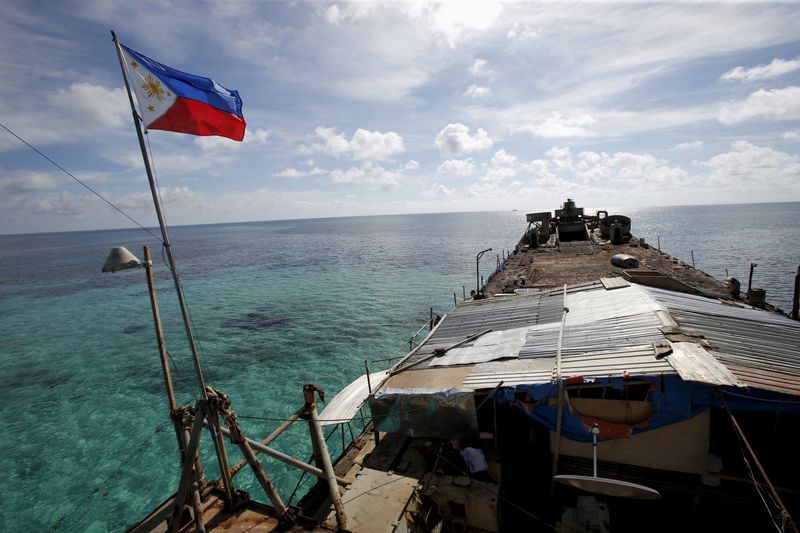BEIJING (Reuters) -China’s Coast Guard stated a Philippine vessel that had ignored its repeated warnings “intentionally collided” with a Chinese language vessel in an “unprofessional and harmful” method within the disputed South China Sea, in line with statements on Monday.
A brief video of the incident posted on China Coast Guard’s social media confirmed the collision occurred round 3:24 a.m. on Monday (1924 GMT on Sunday) and labelled the Chinese language vessel as a coast guard vessel.
In one of many statements, China’s maritime safety stated the identical Philippine vessel then entered waters close to Second Thomas Shoal after being prevented from coming into Sabina Shoal waters.
Two Philippine Coast Guard vessels “illegally intruded” into waters adjoining to Sabina Shoal with out permission within the early hours on Monday, in line with the China Coast Guard spokesperson Gan Yu.
“The Philippines has repeatedly provoked and prompted hassle, violated the momentary preparations between China and the Philippines,” Gan stated, referring to Philippines’ provides missions to a vessel grounded on Second Thomas Shoal.
A Philippines Coast Guard spokesman didn’t instantly reply to a request for remark.
China’s Coast Guard stated it took management measures towards the Philippine ships in accordance with the legislation within the incidents early Monday, and warned the Philippines to “instantly cease infringement and provocation” or “bear all penalties”.

China and the Philippines reached a “provisional settlement” in July after repeated altercations close to the Second Thomas Shoal. China has been sharply criticised by Western nations for aggression in blocking Philippine efforts to resupply troops aboard a navy ship it deliberately grounded 25 years in the past.
Beijing claims virtually the entire South China Sea, together with each shoals, rejecting a 2016 ruling by the Everlasting Court docket of Arbitration in The Hague that Beijing’s expansive claims had no foundation beneath worldwide legislation.


